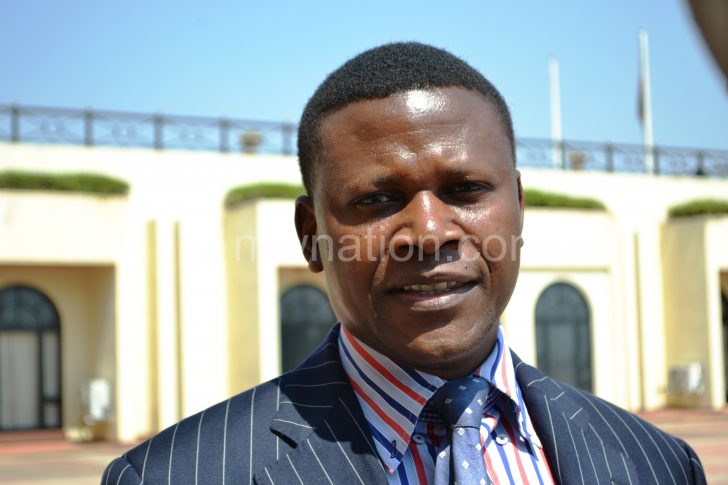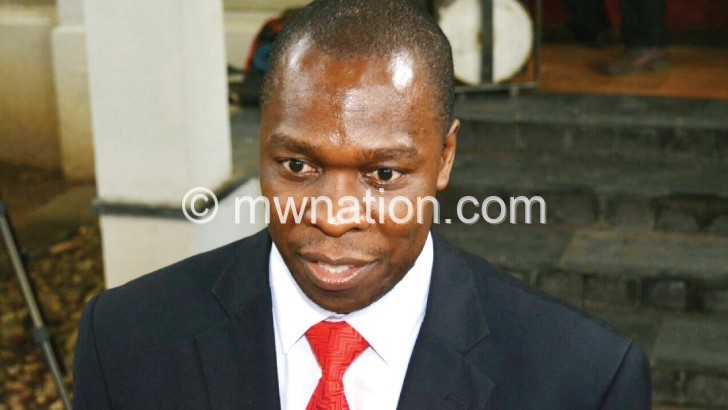Ministers cash in on NGOs, private sector events
Sheer case of abuse. Cabinet ministers demand allowances for presiding over NGOs and private sector functions despite getting the same from OPC or their ministries, Nation on Sunday can reveal.
Interviews Nation on Sunday carried with ministers’ secretaries, their personal assistants, former ministers and non – governmental organisations (NGOs) confirm the ministers’ entrenched culture of asking NGOs to meet fuel and accommodation costs even for their entourage, if the function is outside the capital city, Lilongwe.

This is also despite government giving them a monthly allocation of 1 000 litres of fuel for such operations, among other benefits.
When Nation on Sunday contacted secretaries and personal assistants (PAs) to Cabinet ministers, on processes to invite a minister to a function, four secretaries and two PAs and a former PA confirmed that provision of an allowance to the minister and his entourage is a traditional requirement for those inviting them.
“We are advised to confirm the minister’s attendance only when the issue of allowances is agreed upon,” said one of the secretaries.
Another secretary added: “When writing your invitation, you must state that you will refund fuel for the minister, the PS [Principal Secretary] and other officials who may accompany him. If your activity goes up to lunch, include lunch allowance for the minister and team,” said the secretary, explaining the process when asked what ought to be done when inviting the minister.
Apart from drawing allowances from Office of the President and Cabinet (OPC) and organisers, some ministers also draw funds from their line ministries— meaning on one activity they may end up pocketing money from three sources, according to a former PA to a minister.
“As PA, part of your job is to negotiate with organisations to have the minister paid an allowance and you sign on their behalf because most ministers would not want to have their signature recorded on allowance forms,” said the former PA.
In showing that the issue of asking for allowances from organisers is an anomaly, a former Cabinet minister in the Peoples Party (PP) administration, Ralph Jooma, said for any official function ministers undertake, OPC meets the expenses as per condition of service.
Another Cabinet minister in the Joyce Banda administration also corroborated our findings that ministers get extra money from organisers on top of what OPC and respective ministries provide, saying ministers take advantage of the fact that not many people are not aware of their conditions of service.
“In principle, OPC gives fuel allocation to ministers and some end up abusing the fuel facility at the ministry, too. If the function is for NGOs, you can do as [a matter of] courtesy maybe have lunch or dinner with them without asking for money because every minister, security detail, PA, driver signs for allowances for every function even HEs [President’] function is covered by OPC,” explained the former minister.

of my needs
Another former minister, who opted for anonymity, said: “Most ministers abuse their position to draw allowances from multiple sources. This has become a trend these days. During Bingu’s time we never did that. He was particularly strict about ministers’ conduct,” said a Cabinet minister in the Bingu administration.
But Malison Ndau, former minister of Information in the Peter Mutharika administration, defended the ministers, arguing that sometimes out of desperation for more visibility, NGOs voluntarily offer money.
Ndau added: “During my time—my principle was first come first serve. So, I would not go to a function because of money. OPC took care of my needs; so why demand more?”
He agreed with Jooma that OPC is responsible for the welfare of ministers; hence, no organisation should be obliged to pay an allowance to a minister for official duties. Random interviews with 10 NGOs and some government agencies also showed how rampant the allowance culture is among ministers.
However, Justin Dzonzi, lawyer and social commentator said: “We can assume that functions by NGOs are not budgeted for, therefore, it would be reasonable for ministers to ask for allowance from organisers.

“But what is not acceptable is to draw double allowances from organisers and government. So, it all depends on the honesty of the minister to declare to organisers if they do not need their funding.”
A Northern Region-based NGO told Nation on Sunday that it spent about K1.3 million in fuel, upkeep allowance and accommodation on a minister to preside over a halfday function in 2015.
“The secretary presented us with a budget of about K1.7 million to cover the minister and his team [driver, bodyguard, secretary and personal assistant], but we negotiated to pay K1.3 million. We were told point blank that if we did not meet these expenses, the minister would not attend the function. So, we obliged because we really wanted the presence of government [officials]”.
Another organisation, which also refused to be named, said they spent about K300 000 for a minister to attend their function in Mchinji.
The NGO said it spent K100 000 as fuel refund for the minister to travel between Lilongwe and Mchinji Boma which is about 110 kilometres—meaning the refund was equivalent to about 122 litres of petrol/diesel.
Said an official of a Lilongwebased NGO: “We invited the minister to a function at Sunbird
Lilongwe and we paid K80 000 fuel refund, K20 000 lunch allowance for the minister and K10 000 each for the driver, bodyguard and secretary. The secretary signed on behalf of the minister.”
Asked why they paid a huge fuel refund to the minister who had only covered a distance of less than six kilometres between the hotel and Capital Hill, the source said: “We were advised to do so.”
One international NGO said it had to refund fuel of one litre per seven kilometres to a group of government officials in addition to the minister.
Council for NonGovernmental Organisations (Congoma) programmes officer Simekinala Kaluzi thinks NGOs and others pay huge amounts because they are not aware of ministers’ condition of service.
He also added that sometimes institutions are compelled to pay because they are looking for results, but according to him, the demand for extra money is unethical and describes it as ‘corruption as its best’.
An NGO, which had to settle for K600 000, from a proposed K950 000, for a minister to attend a function in Chikwawa, said they once tried to invite a minister for a function without an allowance, but the minister delegated a director, who also delegated another lower-ranked official after noting that there were no allowances.
“Their budget alarmed us when the secretary told us the figure. Their argument is that the minister uses a Toyata V8, which has higher fuel consumption and drives at a high speed; hence, the need for more fuel. They also said lack or delayed funding in government forces them to ask organisers to pay expenses”.
But, on delayed funding, Ndau said during his time he negotiated with filling stations to provide fuel and pay them later on trust, instead of begging from NGOs.
Chief Secretary to Government Lloyd Muhara had asked for time to respond to Nation on Sunday questionnaire and was yet to respond as we went to press.






This rot starts at the top. APM spends days in NY during the UNGA doing nothing else but collecting allowances. When their “time to eat” comes, the ministers do the same. Then the PSs take their turn, down to the messenger. We’re talking of a really fucked up nation, beyond help.
I think we need legislation or more civic education on this. Otherwise these ministers are milking organisations whose money is meant for the poor.